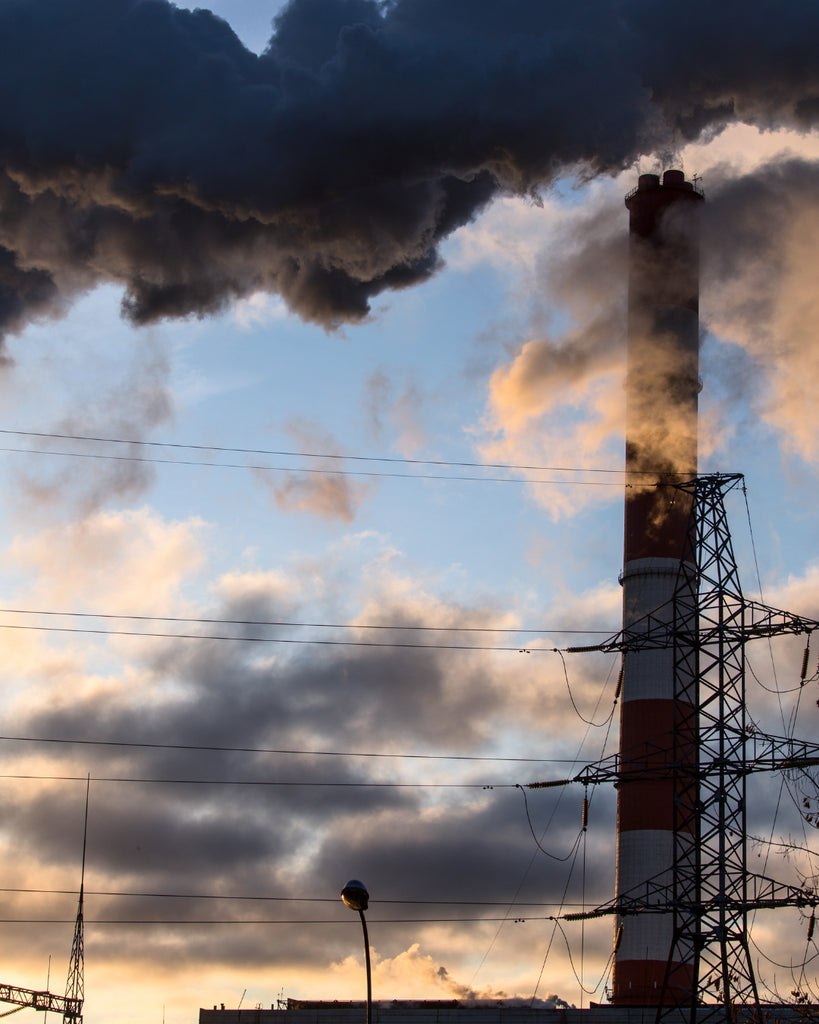Air Pollution: A Global Crisis That Affects Every Aspect of Our Lives

Take a deep breath, and consider this: every time you inhale, you could be exposing yourself to harmful pollutants.
A report by the Environmental Research Group at Imperial College London reveals that air pollution affects human life at all stages, from fetal development to adult mental health.
It is an issue that threatens the health and wellbeing of people all around the world, from the air we breathe to the water we drink, and the food we eat. Air pollution is caused by various human activities, including transportation, industrial processes, and the burning of fossil fuels.
This issue has become a serious concern for public health officials, as it is linked to various respiratory and cardiovascular diseases, as well as premature death.
In this blog, we will explore the impact of air pollution and what can be done to mitigate its effects.
Effects of Air Pollution on Prenatal and Childhood Development
Air pollution can affect prenatal and childhood development. Exposure to it during pregnancy can cause premature birth and low birth weight. The World Health Organization estimates that air pollution causes around 7 million premature deaths globally every year.
Children who are exposed to air pollution are more likely to suffer from asthma, respiratory infections, and impaired cognitive development. This is because air pollution contains toxic particles that can damage brain cells and reduce the oxygen supply to the brain. This can lead to developmental delays and learning disabilities.
Effects of Air Pollution on Adults
Air pollution can have adverse effects on the respiratory and cardiovascular systems of adults. It can cause chronic obstructive pulmonary disease (COPD), lung cancer, heart disease, and stroke. In addition, it can lead to cognitive decline, depression, and anxiety. Exposure to air pollution can also increase the risk of diabetes and obesity. These are all serious health issues that can significantly impact the quality of life of adults.
Effects of Air Pollution on the Elderly
It can have an even greater impact on the elderly. Exposure can cause cognitive decline, dementia, and Alzheimer's disease. The elderly are more vulnerable to the effects of air pollution because their immune systems are weaker, making it more difficult for them to fight off infections.
World Wide Effects of Air Pollution
Air pollution also has a significant impact on the environment. It contributes to global warming, which in turn leads to climate change, sea level rise, and extreme weather events. Polluted air can also damage crops and forests, leading to reduced agricultural productivity and biodiversity loss.
The impact of air pollution is not limited to health and the environment. It also has economic and social impacts. For example, the cost of healthcare for treating diseases related to air pollution can be significant. It can also lead to decreased productivity and missed workdays, particularly for those who work outdoors or in areas with high levels of pollution.
How to Mitigate the Impact of Air Pollution?
Fortunately, there are ways to mitigate the impact of air pollution. One of the most effective solutions is to reduce our dependence on fossil fuels and transition to clean energy sources, such as wind and solar power. Additionally, governments and businesses can implement policies and technologies to reduce emissions from transportation and industry. These can include fuel efficiency standards, electric vehicles, and renewable energy sources.
Individuals can also take steps to reduce their exposure to air pollution. This can include using public transportation or walking and biking instead of driving, reducing energy consumption at home, and avoiding burning wood or other materials for heating or cooking. Additionally, using air purifiers at home or in the workplace can help to reduce exposure to pollutants.
How do Air Purifiers Help?
Air purifiers work by filtering out pollutants from the air, such as dust, pollen, and harmful chemicals. They can also help to reduce the concentration of indoor air pollutants, such as volatile organic compounds (VOCs) and mold. By using an air purifier, we can create a cleaner, healthier indoor environment that can help to protect our health and well-being.
There are several types of air purifiers available on the market, including HEPA filters, activated carbon filters, and ionizers. HEPA filters are highly effective at filtering out airborne particles, while activated carbon filters are better at removing odors and chemicals. Ionizers work by emitting negatively charged ions that attach to airborne pollutants, causing them to fall to the ground.
When choosing an air purifier, it's essential to consider your specific needs and the size of your home. Some air purifiers are designed for smaller spaces, while others are better suited for larger rooms. It's also essential to choose an air purifier that is energy-efficient and has a low noise level, so it won't disturb your daily activities.
Conclusion:
Air pollution is a global crisis that affects every aspect of our lives. It poses a significant threat to human health, the environment, and our economy. However, by taking action to reduce emissions and exposure to pollutants, we can mitigate the impact of air pollution and create a healthier, more sustainable future for ourselves and future generation.


